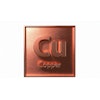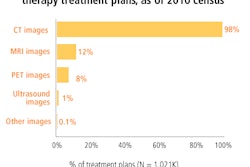What is the risk to patients who enroll in phase I radiation oncology clinical trials? With respect to toxicities, it may be considerable, according to a study presented at the recent American Society for Radiation Oncology (ASTRO) annual meeting.
An analysis of outcomes published in calendar years 2001, 2005, and 2009 of more than 4,500 patients enrolled in 102 clinical trials conducted worldwide even surprised the research team from the Kimmel Cancer Center at Thomas Jefferson University in Philadelphia. Patients had a greater than 40% risk of developing a major toxicity. The researchers had hypothesized that the risk of serious toxicity would be about 10%.
Patients with lung (22%), brain (12%), rectal (11%), and head and neck (11%) cancers were enrolled in the clinical trials. Two-thirds of the trials were multinational and multi-institutional. Twenty-nine trials tested radiation therapy treatments with (21 trials) and without (eight trials) dose escalation. Seventy percent of the clinical trials had protocols that used a dose-escalated chemotherapeutic or biologic agent delivered with radiation therapy.
All patients were followed for a median of at least two years. Thirty-nine treatment-related deaths were reported, less than 1% of the total number of participants, according to lead author Charles Glass, a fourth-year medical student at Thomas Jefferson. A total of 1,881 acute toxicities of grade 3 and higher were reported, and half of the clinical trials reported that patients experienced late toxicities from the radiation therapy.
The analysis was designed to sample clinical trial results published in the past decade. Twenty-nine percent were published in 2009, 44% in 2005, and 27% in 2001.
"The majority of side effects were identified in studies that used a combination of chemotherapy and radiation at the same time," commented Yaacov Richard Lawrence, MD, assistant professor of radiation oncology. "We may not see as much toxicity from this point on, because most clinical trials today are looking at newer, less toxic medicines."
Robert Den, MD, a radiation oncology resident who delivered the poster presentation, stated that the findings are important because they can be used to provide a truer sense of risk to patients who enroll in phase I and/or phase I/II clinical trials. He noted that lack of published data prevented analysis and quantification of benefits.
By Cynthia E. Keen
AuntMinnie.com staff writer
November 9, 2010
Copyright © 2010 AuntMinnie.com



















